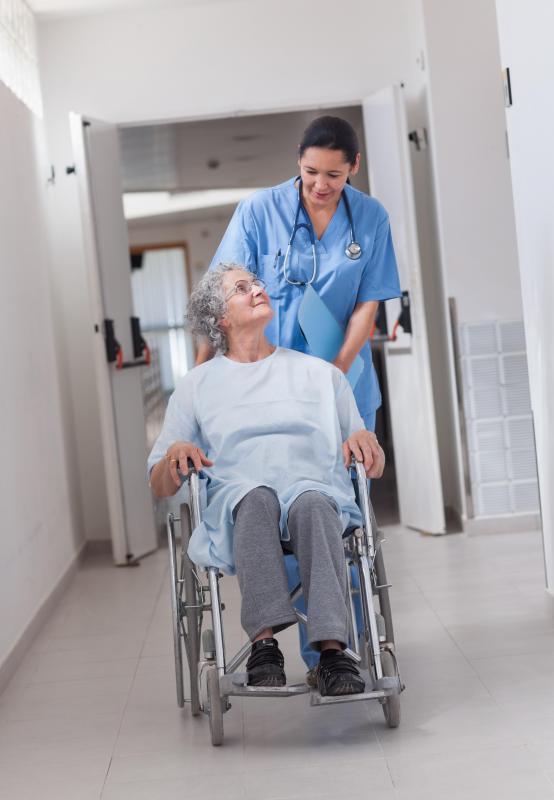At WiseGEEK, we're committed to delivering accurate, trustworthy information. Our expert-authored content is rigorously fact-checked and sourced from credible authorities. Discover how we uphold the highest standards in providing you with reliable knowledge.
What are the Different Types of Nursing Certifications?
For those people who are compassionate, detail-oriented and strong enough to handle the emotional roller coaster that working in medical field requires, nursing is one of the most frequently chosen occupations. One of the reasons for the popularity surrounding the nursing profession is the numerous nursing certifications available within the vocation. There are four different types of nursing certifications for aspiring nurses and they all have different responsibilities and education requirements.
Becoming a Licensed Practical Nurse (LPN) requires the least amount of education out of all the nursing certifications. An LPN is qualified to give medications and administer some medical treatments, but it must be under the supervision of licensed physician, dentist, optometrist, podiatrist or registered nurse. LPNs may also take vital signs, apply dressings, insert catheters and anything else that isn’t considered invasive.

The next type of nursing certification is a Registered Nurse (RN). The responsibilities of an RN are very broad. A RN’s tasks typically include treating patients in hospitals and long-term care units, in addition to advising patients on follow-up treatment and home care.
RNs may do many of the things an LPN will do; however, they are able to administer medications and perform certain procedures without supervision. RNs may also choose to specialize in a certain medical field where they will receive special training for any additional responsibilities. The minimum education requirement for an RN to take a licensing exam is an Associate’s Degree with completion of an approved nursing program.

To have the best opportunity in the job market, most professional nurses choose to get their Bachelor of Science in Nursing (BSN). Someone with a BSN has the same training as an RN, but also has obtained a four-year degree. A nurse that holds a BSN will start in the field performing the same duties as an RN, but will be prepared for management and administration skills in the future.

Once a nurse receives her RN and/or a BSN, the next step in further education is a Master’s of Science in Nursing (MSN). When pursing an MSN, concentrations will be centered on training, research or a specialty. Most nurses in an MSN program will receive their advanced degree in 18-24 months. Once a MSN program is completed, there are additional nursing certifications for specializations such as becoming a nurse practitioner, nurse midwife or a nurse anesthetist. There are approximately 30 different specialization areas that are credentialed by the American Nurse’s Credentialing Center which is a division of the American Nurses Association.
AS FEATURED ON:
AS FEATURED ON:


















Discussion Comments
I have a 17 year-plus background in what I like to call "peri-geriatric" care. I began by having family and friends in wheelchairs my entire life and when I ultimately landed in nursing, I started in physical rehabilitation.
This encompassed joint replacements, strokes, the innumerable complications of diabetes, head injuries, etc. I then went into home health and hospice, each twice, in different settings and now am working in a nursing home which does have a Rehab. facility also.
I am 57 years old and feel I will likely be working a long time, so, I am thinking that it would be wise to find some sort of a "Certification" that would enable me to become a consultant in any one of the many areas I feel I would be competent to teach. I would probably be good at research as well but need to make enough to support myself! Any suggestions?
Post your comments